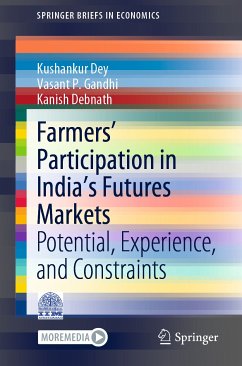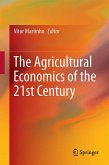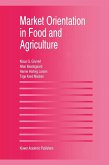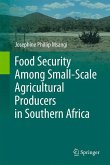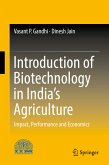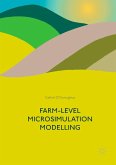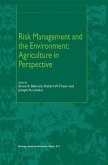A number of organizations related to rural development, as well as farmer producer companies have sought to facilitate farmer participation in the forward/futures market through offering aggregation and other trading services, and the book also examines these efforts towards the exchange-traded derivative markets and the direct and indirect benefits that accrue. The book also studies the efficiency of futures markets in price discovery and price dissemination applying co-integration tests, and error correction and volatility models, using available data of wheat, rapeseed-mustard, cotton, guar seed, castor, cumin and coriander futures contracts traded in the largest agricultural commodity exchanges in India. Besides, case studies are used to examine and understand the institutional roles of aggregators in aggregation efforts towards the forward/futures market. This book covers several states and locations in India to enhance the representation and validity of the findings. It also examines representative farmer organizations which have obtained institutional membership in the forward or futures markets, and identifies areas of further research.
In the current scenario, the book would be of immense importance and relevance to governments, commodity exchanges/markets, aggregators, many private and development organizations, as well as interested researchers and students.
Dieser Download kann aus rechtlichen Gründen nur mit Rechnungsadresse in A, B, BG, CY, CZ, D, DK, EW, E, FIN, F, GR, HR, H, IRL, I, LT, L, LR, M, NL, PL, P, R, S, SLO, SK ausgeliefert werden.

